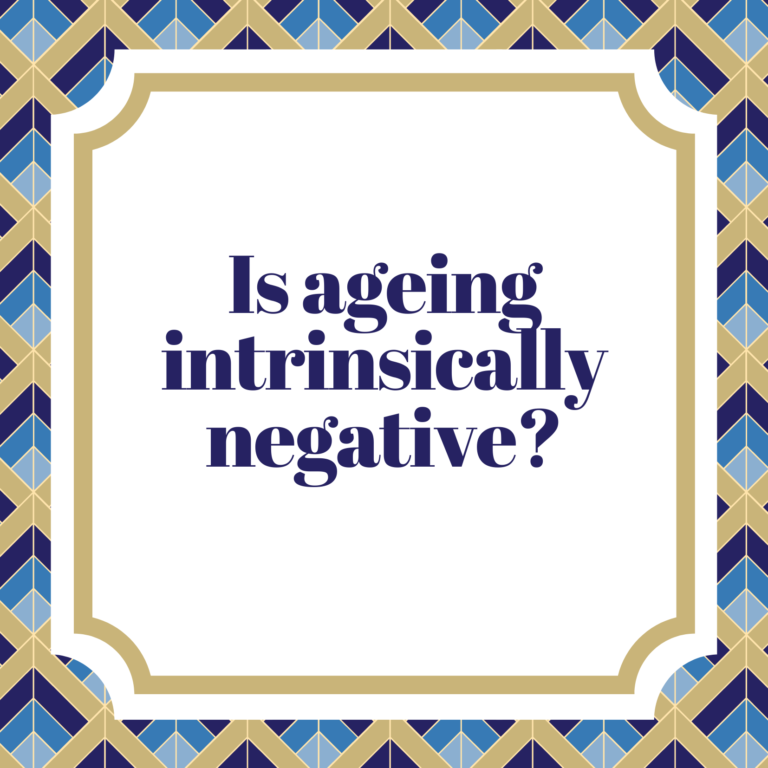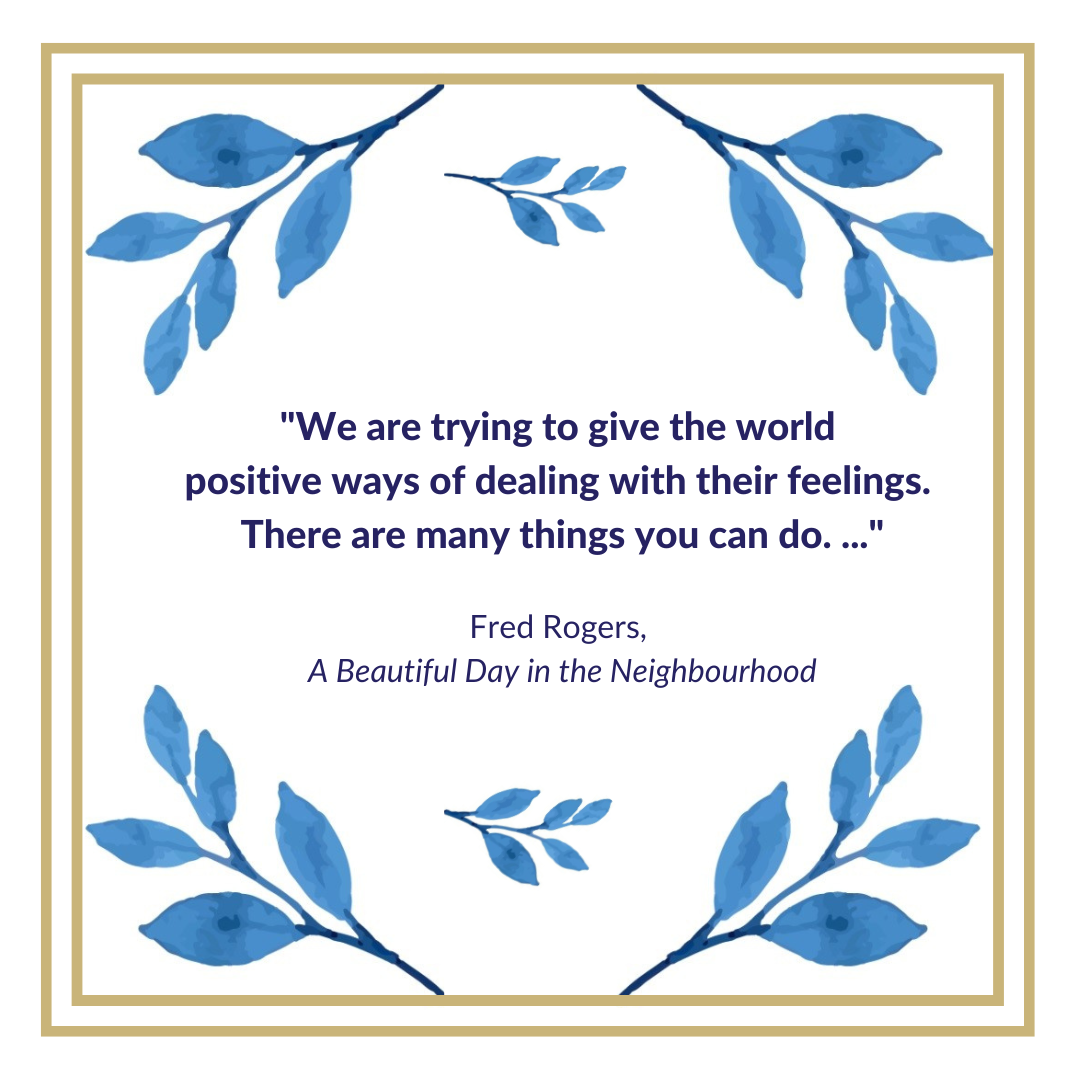Since asking colleagues whether they consider The Ageing Translator positive or negative, I have realised it was the wrong question.
Naturally, I was seeking to work out whether the name might deter prospective clients from working with me. I am a professional translator running a business after all, so I think about such things. However, as many of my clients work in related fields, they come across the word ageing regularly. Would it not be strange for them to find The Ageing Translator name off-putting? As it happens, the colleagues I originally sounded out have other areas of expertise, though they are not unaffected personally. Ageing touches all our lives.
Ageing “Just Is”
Yes, wondering whether colleagues see The Ageing Translator as a positive or negative name was definitely the wrong question. Categorising ageing as positive or negative is not helpful. As a dear (much) younger friend of mine would say, “It just is”. Ageing is a fact of life. Indeed, if we follow some people’s assumptions that older age starts at 50 (not my view), many of us will be “older” for half our lifespan. Do we really want to view half our lives as intrinsically negative? As something we have to fear and “get through”? Is it realistic, and sane, to brace ourselves to live through the second half of our existence as something we have to endure through gritted teeth?
Surely we need to just accept that ageing is an integral fact of life, embrace it and make the very best of it. Is it the fact of being older that we fear? Or is it the assumed diminishing of certain faculties, the “slowing down”, the fear of depending on others?
Do we worry about whether we will be treated well and empowered to flourish? About whether our personal wishes and potential will be respected and fulfilled? If so, is it possible for some of those concerns to be allayed?
Older Adults Can Live Well
Many of us know, or have known, older adults who live life to the full. I even had a much older friend who used to ride around London on her bicycle in the early 1990s. That was no mean feat in the days before bikes were available for hire on London streets. I cycled around the capital myself in my twenties — and it filled me with trepidation!
Yet many of us also know younger people who go through the mill. Or who have neither the joie de vivre nor the capacity to make the best of things even in good times. So, is ageing intrinsically negative? Do not character, resilience, outlook, circumstances and health play their part?
Do We Have to Live Fast-Paced Lives?
Does living life to the full mean we have to live it fast? Our world is learning over and over again that speed can carry a high price tag; that we are even outstripping the pace of nature to its detriment. Surely we can absorb know-how from folk who take life at a slower pace, whether from need or personal choice. And from those who prefer, and wish, to be interdependent and connected intergenerationally. Would that not be for to our benefit as well as theirs?
My personal answer to that last question is a resounding yes. We know that not all older folk live life slowly, just as not all younger folk live life fast, although it is becoming increasingly common. Nonetheless, previous generations have frequently modelled the values of building community, of relating one-to-one and face-to-face, of taking “time to stop and stare”. They often show us the advantage of things taking as long as they take, and that it can be more beneficial to wait than to try to power through.
These values are present in creation. They inhabit the very fabric of our existence, and we are learning that we ignore them at our peril. Yet those who have lived longer have often learned to appreciate their worth, even if they also thought differently when they were younger. With the wisdom of hindsight, I have also learned their significance, just as I know that my older loved ones have often been my towers of strength and the “rocks” I have leant on along the way. They have helped me become the person I am today and my life would have been greatly impoverished without their input.
Ageing Has a Purpose
These are a few of the reasons I think that older age “just is”. I genuinely believe it has a purpose. Most likely more than one. Or two. Or three. Or more. Even if we never fully fathom why, would we not do better to accept that ageing forms part of life’s rich tapestry? Rather than worrying about it, or railing against it, perhaps we can try to mine its riches to benefit ourselves, our loved ones and the wider world.
If we presuppose that ageing is intrinsically negative, this will never happen. It is worth crossing the divide caused by our preconceptions to take a step towards accepting our future older selves. And, perhaps more importantly, towards accepting those around us who are currently much older than we are.
Will You Work Towards Improving All Our Futures?
Working and living alongside older adults has always been part of my life’s calling in diverse ways. As a translator and proofreader, I tackle ageing-related texts in support of other professionals who are working to improve all our futures. I want to “do my bit”.
I believe the few negative responses to the name The Ageing Translator prove that more needs to be done to reduce our fears and address our concerns about ageing. In the end, my considered answer to those with understandable reservations, is that I am prepared to roll with the punches. I am still fairly young (at least I think so), but I have never viewed age as a barrier per se.
Nor am I concerned about my mortality. The possibility of suffering does concern me, as it would most people. But death does not. I am quite content to live a finite life and to enjoy it until the very end.
I still have fears about my older years and I could let these fears take hold. Yet, rather than give way to those worries, I prefer to focus on trying mitigating the ones I can. If we all work together to improve the experience of older age, we might have an easier time caring, supporting and doing life alongside older relatives and loved ones. We will also have a better chance of ensuring that our own later life will be as fruitful, healthy and comfortable as possible.
In time, I hope that all our efforts will make these improvements a reality. I for one intend to play my part. How about you?







